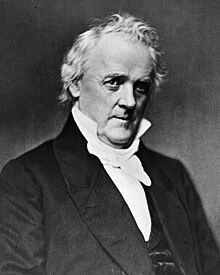📖 Presidential Profile
Comprehensive overview of leadership, policies, and historical significance
📋 Biography & Political Journey
Early Career and Diplomatic Service
James Buchanan Jr. was born on April 23, 1791, near Mercersburg, Pennsylvania, to James Buchanan Sr. and Elizabeth Speer Buchanan. He graduated from Dickinson College in 1809 and studied law, establishing a successful legal practice in Lancaster, Pennsylvania. Buchanan entered politics as a Federalist, serving in the Pennsylvania House of Representatives (1814-1816) and the U.S. House of Representatives (1821-1831). He was the only president who never married, though he was briefly engaged to Ann Caroline Coleman, whose death in 1819 devastated him and influenced his decision to remain single.
Buchanan’s extensive political career included service as U.S. Senator from Pennsylvania (1834-1845), Minister to Russia (1832-1833), and Secretary of State under President James K. Polk (1845-1849). As Secretary of State, he helped negotiate the Oregon boundary dispute with Britain and supported the Mexican-American War. His diplomatic experience abroad during the contentious Kansas-Nebraska debates of the 1850s kept him removed from the slavery controversy, making him an attractive Democratic presidential candidate in 1856 as someone who had not taken inflammatory positions on the issue.
Buchanan won the 1856 presidential election by promising to resolve the slavery question through popular sovereignty and judicial decisions. He believed the Dred Scott decision would settle the slavery issue by declaring that Congress could not prohibit slavery in territories. However, his support for the controversial Lecompton Constitution in Kansas, which would have admitted Kansas as a slave state despite majority opposition, split the Democratic Party and intensified sectional tensions rather than resolving them.
Failure During the Secession Crisis
Buchanan’s presidency is most remembered for his catastrophic failure to address the secession crisis following Lincoln’s election in November 1860. When South Carolina and other states began seceding, Buchanan took the constitutionally questionable position that while states had no right to secede, the federal government had no power to prevent them from doing so. This paralysis allowed Confederate states to organize, seize federal property, and prepare for war while the lame-duck president did nothing. Buchanan’s Secretary of War, John B. Floyd, was suspected of transferring weapons and supplies to Southern arsenals in preparation for rebellion. His refusal to reinforce Fort Sumter and other federal installations in the South effectively handed strategic advantages to the Confederacy. Modern historians consistently rank Buchanan among the worst presidents for his inability to provide leadership during the nation’s greatest crisis, with many arguing that more decisive action might have prevented or shortened the Civil War.
The White House Bachelor Pad
As the only bachelor president, Buchanan brought a unique dynamic to the White House that often amused and scandalized Washington society. His niece Harriet Lane served as his official hostess, but Buchanan’s closest relationship was with his “mess mate” Senator William Rufus King of Alabama, with whom he shared living quarters for over a decade. Their unusually close friendship led to whispered speculation and earned them the nickname “the Siamese twins” from Andrew Jackson. Buchanan’s White House entertaining was legendary for its bachelor-style excess, with elaborate dinners featuring massive quantities of food and drink. He was known to consume a bottle of whiskey daily and would often host late-night card games that scandalized more proper Washington wives. When asked about his drinking habits, Buchanan allegedly replied, “The Madeira and sherry wine which I have been in the habit of taking has never affected my head or my heart,” though visitors noted he seemed unusually cheerful during evening social events.
Humor & Jokes
Fort Sumter Crisis
Buchanan left the Fort Sumter crisis for Lincoln to handle. He practiced the fine art…
Read More →Greatest Wins
🐎 Establishment of the Pony Express Route
Buchanan approved federal support for the Pony Express, dramatically improving communication across the American continent…
Read More →Epic Fails
⚖️ Failure to Prevent Southern Secession
Buchanan's passive response to secession crisis helped trigger Civil War. His inaction during the nation's…
Read More →